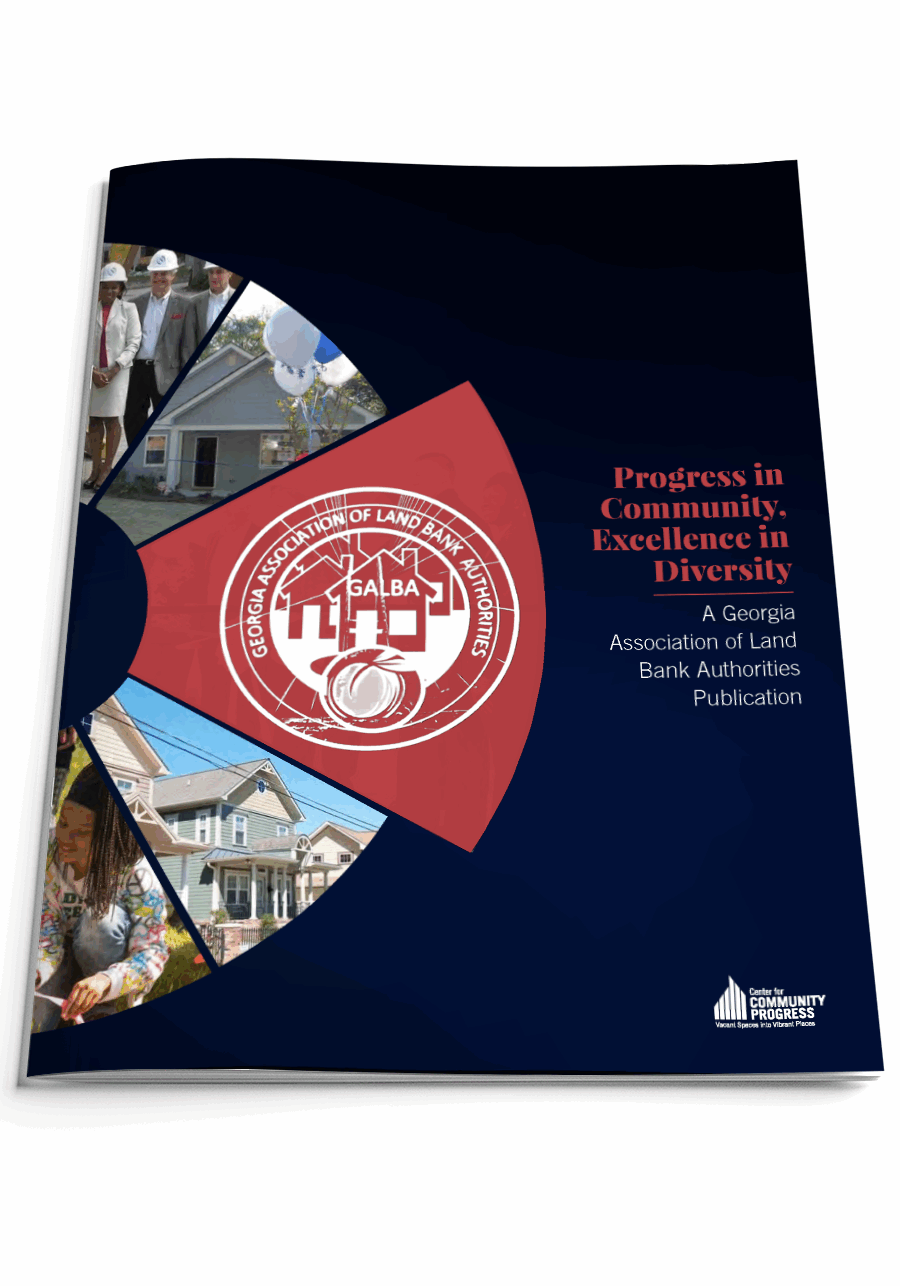Progress in Community, Excellence in Diversity
A Georgia Association of Land Bank Authorities Publication
Topic(s): Land Banks, State & Local Analysis
Published: September 2019
Geography: Georgia
Author(s): Center for Community Progress, Georgia Association of Land Bank Authorities
Georgia communities have quietly utilized a powerful, nimble tool to fight back one property at a time: land banks. Land banks, which acquire vacant, abandoned, taxdelinquent, and deteriorated properties and return them to productive uses, are Georgia’s most underutilized, and under-resourced community stabilization tool. Georgia’s 23 land banks, representing 23 counties and 30 cities and towns, have been turning vacant spaces into vibrant places since the creation of the first land bank in the state in 1991.
By 2011, land bank leaders around the state were sharing best practices and supporting one another—ultimately forming the Georgia Association of Land Bank Authorities (GALBA) and organizing around the 2012 Georgia Land Bank Act, which the Georgia legislature passed with near-unanimous support. The 2012 Act granted increased statutory authority and flexibility to land banks, authorized and encouraged regionalism and self-financing mechanisms, and set the stage for the next generation in Georgia land banking. Since its passage, some previously dormant land banks have ramped up operations and at least nine new Georgia land banks have formed, many in rural spaces like Laurens, Macon, Glynn, and Sumter counties.
Georgia land banks are utilizing their powers effectively. However, their cumulative impact could be much greater if Georgia land banks were adequately resourced.
This report is designed to introduce stakeholders to the wide diversity of land banks throughout the state, and to celebrate successes achieved despite limited resources and capacity. This report is also designed to lift up the potential of Georgia land banks to achieve larger scale outcomes across the state, including data tracking and analysis—the impact of which could benefit the work of housing authorities, community development organizations, neighborhood associations, and more.

Topic(s): Land Banks, State & Local Analysis
Published: September 2019
Geography: Georgia
Related Publications
Other Related Content
More content coming soon
Subscribe to join 14,000 community development leaders getting the latest resources from top experts on vacant property revitalization.
